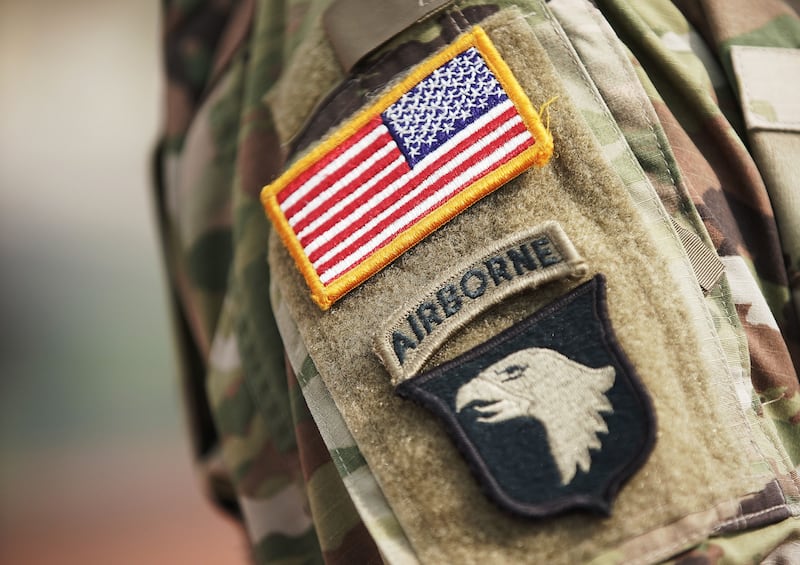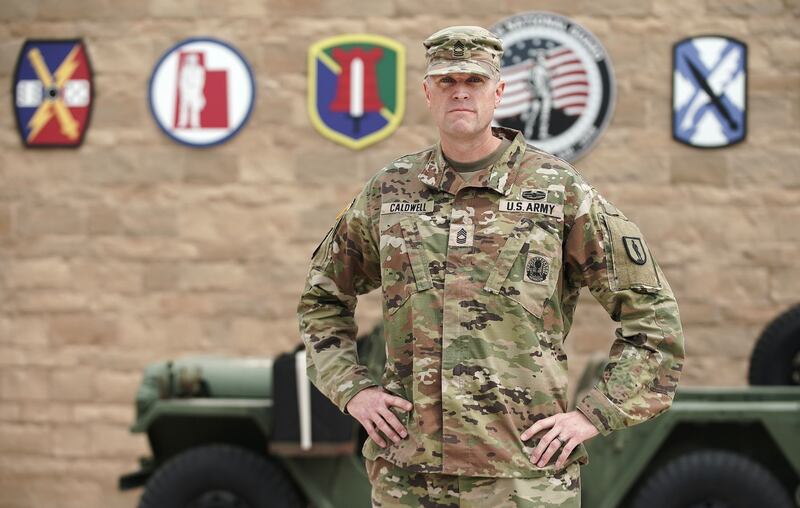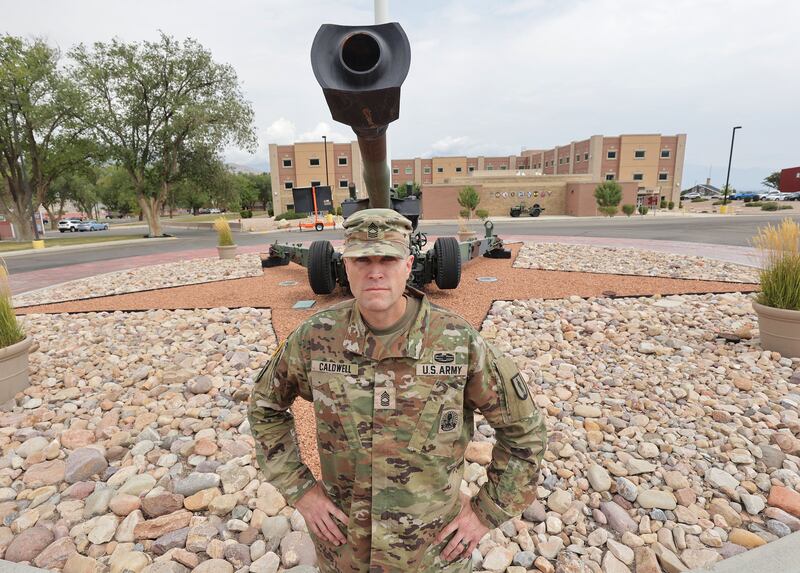Twenty years later, Master Sgt. Christopher Caldwell looks back on a promise he made to himself when the only thing he was sure about was he sure didn’t know what he was going to do with the rest of his life.
He’s asked what he would say to that 23-year-old who looked at the smoldering wreckage of the Pentagon and the World Trade Center and vowed that he would sign on to help America in this new war on terror.
Caldwell is at Camp Williams in Bluffdale, home of the Utah Army National Guard, where he teaches military intelligence. In his line of work, he’s not used to dispensing information without thinking, if at all.
After a moment, he responds, “I would say to my 23-year-old self that I’m glad he stuck to what he believed; that serving other people really is where it’s at. And I’d tell him about the good things coming in his life; that some of them would be hard, but it would all be worth it.”
• • •
He wasn’t in America on Sept. 11, 2001. He was living in Brazil, halfway through his two-year mission for The Church of Jesus Christ of Latter-day Saints. He had just picked up his mail — Tuesday was mail day — and was riding in an elevator when his companion, a native Brazilian who was paying attention to a news report on the elevator speaker, said to him, “Your country is under attack.”
Absorbed in a letter from home, Caldwell mumbled, “No way,” and kept reading.
When they came out of the elevator, images on a cafe TV were showing the wreckage in New York and Washington, D.C.
“What movie is that?” asked a still uncomprehending Caldwell.
“That’s no movie,” said his companion, “that’s the news.”

The American missionaries were put on lockdown for the next four days. There was a small minority celebrating America being attacked, and no one wanted any possible conflicts. That gave Caldwell time to process what had just happened.
“At first, I was confused more than anything,” he says. “At 23, my life view of the world was everybody loves everybody. Realizing that there were people out there who wanted to harm individuals that hadn’t done anything, it was confusing and heartbreaking.”
Less than a month later, he saw more images on cafe televisions. These were of American troops in Afghanistan, hunting in caves to roust out al-Qaeda and search for Osama bin Laden.
That’s when Elder Caldwell decided that once he returned stateside, he would join the Army.
“I saw those images and thought ‘I need to go home and do my part; I need to serve,’” he says. “I wasn’t planning on directly killing terrorists, necessarily, but I decided whatever the military and the country wanted me to do, then I was willing to do it.”
The Bingham High graduate (Class of ’96) arrived back home in Riverton in May of 2002 to hugs from his family. In July he walked into the Army recruiting office in Murray and was again welcomed with open arms.
His decision received no pushback from his family, other than they wondered why he hadn’t chosen the Air Force. Christopher was following in a long and proud military tradition. His father, Michael, served in Vietnam; his grandfather, Keith, served in World War II and Korea; his maternal grandfather, Weldon Webster, served in World War II; his brother, David, served in the first Gulf War. Every one in the Air Force.
But “I wanted to be boots on the ground,” he explains, “I wanted to be In the middle of things,” so he chose the Army.
The recruiters told him he could join either the regular U.S. Army or the Utah Army National Guard. He chose the Guard. When they found out he could speak a second language, in his case Portuguese, they put him in intelligence. His course was set (although to this day he’s yet to use his Portuguese in his work).

He was deployed in 2008 to Afghanistan, the country he saw being invaded on those grainy TV screens in Brazil. He was assigned to Ghazni FOB (Forward Operating Position). He spent a year going on patrols and humanitarian aid missions with the infantry, Special Forces and other factions, mixing on a regular basis with the Afghan people. His boots were on the ground.
“I can’t talk much about what I did,” he says, citing intelligence protocols. But in general terms he says that besides rooting out the bad guys, they built schools, dug wells, provided food and water, and that “the vast majority of the people were very gracious. They liked us.”
He was a constant target, got shot at a lot, carried his rifle wherever he went and returned to Utah with post-traumatic stress disorder, “But the Army provided the help I needed and I got through it. I sleep fine at night.”
His heart goes out, he says, to the Afghan people now that our troops have been withdrawn. “It’s a difficult situation for sure, and complicated.”
As for his view on how the war on terror is going 20 years later, he points out that America hasn’t had another 9/11 in 20 years, “and that’s a very big win.”
On this 9/11, like all of them, he’ll think back to what the first one did to America, to the world, and to him.
“I wasn’t going to serve prior to 9/11; I didn’t have plans to be in the military,” he admits. “I thought I’d come home and try to go to pharmacy school; I’d taken chemistry classes at the University of Utah before my mission.”
The events of Sept. 11, 2001, abruptly changed his life’s course.
“I wasn’t the only one,” he is quick to add. “I met a lot of guys, and gals, the same as me. We all joined because we saw that our nation needed us. We joined for the cause.”
And if he had it to do all over? “Without question, I’d do it again.”


